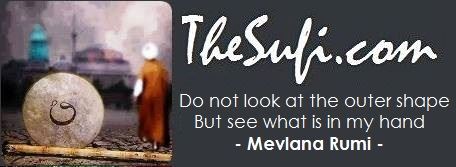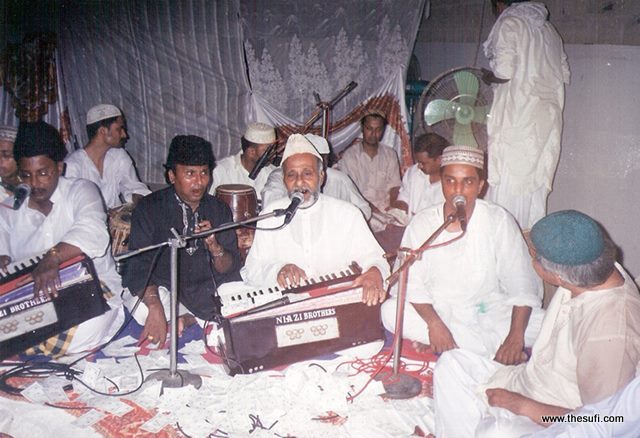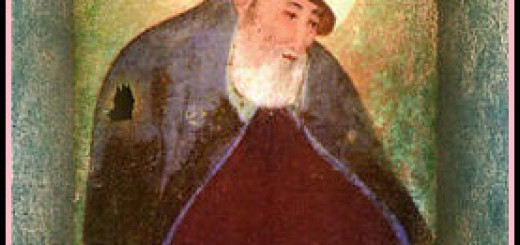Qawwalis by Ustad Manzoor Khan Niazi, Ustad Munshi Raziuddin Khan and Ustad Bahauddin Khan – Research by Wazir Dayers
Dear Brother W,
Tonight I’m sending you some qawwalis by Ustad Manzoor Ahmad Khan Niazi, Ustad Munshi Raziuddin Khan and Ustad Bahauddin Khan.
The first three beautiful qawwalis come from an LP that was released by in 1976, with the title “Ya Badi‘ al-Jamal”. On this album, Ustad Manzoor Niazi sings together with his cousin, Ustad Munshi Raziuddin.
The qawwalis are in Arabic and Urdu. These are the titles:
1) “Marhaba, Ya Noor-al-Ayni, Marhaba” – “Welcome, O Light of the Eye, Welcome! Welcome, O Grandfather of al-Hussain, Welcome!”. This song is in praise of the Holy Prophet (S.A.W.S.), i.e. a Naat.
2) “Ya Badi‘ al-Jamal” – “O Originator of [All] Beauty”. This qawwali also is a Naat.
3) “Allah Hu, Allah Hu” – This is a Hamd, a song in praise of God.
Then I send you some qawwalis by Ustad Bahauddin Khan. The first two are “qalbanas”:
Qalbana 1: Subhāna Dhī l-Mulki wa l-Malakūt
ﺴﺒﺣﺎﻥﹶ ﺬﻱ ﺍﻠﻤﻠﻙﹺ ﻮ ﺍﻠﻤﻠﻛﻮﺕ
ﺴﺒﺣﺎﻥﹶ ﺫﻱ ﺍﻠﻌﺯﺓ ﻮ ﺍﻠﻌﻅﻣﺔ ﻮ ﺍﻠﮩﻳﺑﺔ ﻮﺍﻠﻘﺪﺮﺓ ﻮ ﻠﻜﺒﺮﻳﺎﺀ
ﺬﻮ ﺍﻠﺠﻼﻝ ﻮ ﺍﻠﺠﻤﺎﻝ ﻮ ﺍﻠﻜﻤﺎﻝ ﻮ ﺍﻠﺠﺒﺮﻮﺕ
ﺴﺒﺣﺎﻥﹶ ﺍﻠﻤﻠﻙ ﺍﻠﻤﻘﺼﻮﺩ
ﺴﺒﺣﺎﻥﹶ ﺍﻠﻤﻠﻙ ﺍﻠﻤﻮﺠﻮﺩ
ﺴﺒﺣﺎﻥﹶ ﺍﻠﻤﻠﻙ ﺍﻠﻤﻌﺒﻮﺩ
ﺴﺒﺣﺎﻥﹶ ﺍﻠﻤﻠﻙ ﺍﻠﺤﻲﹼ ﺍﻠﺫﻱ ﻻ ﻴﻨﺎﻡ ﻮ ﻻ ﻴﻣﻮﺕ ﻮ ﻻ ﻴﻔﻮﺕ
ﺃﺒﺩﹰﺍ ﴽﺒﺩ ﺴﺒﻮﺡﹲ ﻗﺩﻮﺱﹲ
ﺮﺒﻨﺎ ﻮ ﺮﺏﹼ ﺍﻠﻤﻼﺋﻜﺔ ﻮ ﺍﻠﺭﻮﺡ
ﺤﻲﹲ ﺤﻲﹲ ﻗﻴﻮﻡ ﻗﻴﻮﻡ
ﺘﻨﻮﻡ ﺘﻨﻮﻡ ﺘﻨﻮﻡ ﺘﻨﻮﻡ
ﺘﻨﺎ ﻨﺎ ﻨﺎ ﻨﺎ ﻨﺎ…
This is a very old qawwali, entirely in Arabic. It is a “qalbana”. I have never found a satisfactory definition of a “qalbana”. All I’ve been able to find is that it is one of the various forms of qawwali that were introduced by Hazrat Amir Khusrau (R.A.).
Since the text is in Arabic, I’ve transcribed its words the way I learnt it at university. Pakistani and Indian qawwals pronounce the words rather differently, but I’m confident that you’ll have no trouble to follow the transcription.
Subhāna Dhī l-Mulki wa l-Malakūt [1]
Glory be to the One to whom belong the Kingdom of the Cosmos and the Angelic Realm
Subhāna Dhi l-‘Izzati wa l-‘Azmati wa l-Haybati wa l-Qudrati wa l-Kibriyā’
Glory be to the One to whom belong Power, Greatness, Awe-Inspiring Dignity and Grandeur
Dhū l-Jalāl wa l-Jamāl wa l-Kamāl wa l-Jabarūt [1]
The One to whom belong Majesty, Beauty and Perfection [2] and the Realm of Divine Power
Subhāna l-Maliki l-Maqsūd
Glory be to the King who is the Purpose [of all actions and beings]
Subhāna l-Maliki l-Mawjūd
Glory be to the King who is Present [i.e. Omnipresent – He is everywhere and in all things and beings; no other is Present but He]
Subhāna l-Maliki l-Ma‘būd
Glory be to the King who is worshipped [with loving desire and devotion]
Subhāna l-Maliki l-Hayyi l-Ladhī lā yanāmu wa lā yamūtu wa lā yafūtu
Glory be to the Ever-Living King Who never sleeps, never dies and never ends
Abadan abada, Subbūhun, Quddūsun, Rabbunā wa Rabbu l-Malā’ikati wa r-Rūh
He endures forever, forever and always Glorified, Holy, our Lord and Cherisher and the Lord and Cherisher of the Angels and ar-Ruh [3]
Hayyun, Hayyun, Qayyūm, Qayyūm [4]
Tanōm, tanōm, tanōm, tanōm, tā-nā-nā-nā… [5]
[1] See the text on the below about “Mulk, Malakūt and Jabarūt”.
[2] Jalāl or “Majesty” is also interpreted as the masculine or active and giving principle (comparable to “Yang” in Taoism); Jamāl or “Beauty” is also interpreted as the feminine, passive and receptive aspect (comparable to “Yin” in Taoism); when Jalāl and Jamāl are in balance, there is Perfection or Kamāl.
[3] Ar-Rūh = ar-Rūh al-Qudus (“the Holy Spirit”) or ar-Rūh al-Amīn (“the Trustworthy Spirit”). Both are names for Hazrat Jibrā’īl (A.S.) (i.e. Gabriel), the Archangel who revealed the Holy Qur’ān to Hazrat Muhammad (S.A.W.S.).
[4] Al-Hayy (Hayyun, without the definite article and with the nominative case ending) means “the Living”, “the Ever-Living”. It is often combined with the name al-Qayyūm, a Divine name that means “the Self-Subsisting” or “the Self-Existing One Who is the foundation upon which all things exist.”
[5] These seemingly abstract and meaningless syllables are also sung in the Tarāna genre, created by Hazrat Amir Khusrau (R.A.). Certain Sufi mystics have said that the syllables of a Tarāna do have meaning; the famous Indian classical vocalist Ustad Amir Khan (1912-1974), who was very familiar with Sufism, said the same. See http://qaul.blogspot.be/2008/05/tarana-singing-ustad-amir-khan.html if you want to read more about it.
Mulk, Malakūt and Jabarūt
Mulk = “Kingdom” (Mulk is derived from the same Arabic verbal root as al-Malik, “The King”, “The Ruler”, and Mālik al-Mulk, “The Master of the Kingdom”, “The Owner of All Sovereignty”,“ The Lord of Absolute Ruling Power”).
Mulk = “The corporeal cosmos”.
The corporeal, observable universe that we understand as “here” and “the cosmos”.
Malakūt= “The Angelic Realm”. (malak = angel)
The spiritual and intellectual realm.
The spiritual/intellectual realm where the souls/intellects and all the spiritual faculties reside.
Jabarūt = “The World of Power” (Jabarūt is derived from the same Arabic verbal root as al-Jabbār, “The All-Compelling”, “The Irresistible”).
Jabarūt = The Innermost or Essence (Dhāt) of Mulk and Malakūt.
Jabarūt is the “root” of Mulk and Malakūt.
Mulk and Malakūt are two aspects of Jabarūt. Jabarūt is the seed and the root of all realms. Also see the picture about Mulk, Malakūt and Jabarūt; one picture often says more than a thousand words!
Qalbana 2: Allāhumma, Anta s-Salām wa Minka s-Salām
This qalbana in another one of Hazrat Amir Khusrau’s creations. It was sung live, and Ustad Bahauddin Khan Sahib first gives a brief introduction in English.
The first part of this qalbana, which is in Arabic, is linked to a hadīth:
It was narrated that ‘Aisha (R.A.) said:
“When the Messenger of Allah (S.A.W.S) said the Salām, he would sit only for as long as it took to say: ‘Allāhumma, Anta s-Salām wa Minka s-salām. Tabārakta, yā Dhā l-Jalāli wa l-Ikrām. (O Allāh, You are As-Salām [Perfect Peace], from You is all peace, You are full of Blessing, O Possessor of Majesty and Honour).’”
The second part is in what I assume to be Hindevi (or Hindavi), the form of Hindustani spoken in the Delhi area in Hazrat Amir Khusrau’s time, and the precursor of Urdu (correct me if I’m wrong, because Hazrat Amir Khusrau (R.A.) also wrote in Braj Bhasha).
In conclusion I send you two digitalised Pakistani audio tapes. The first is is called “Ya Habibi, Ya Muhammad” “O my Beloved, O Muhammad” and for the most part consists of Urdu Na‘ts. I don’t know when this tape was released, but it must have been a few decades ago, since you can still hear the voice of Ustad Qutbuddin Khan, Ustad Bahaduddin Khan’s brother.
The second digitalised tape, simply entitled “Bahauddin Qawal”, is less old. It contains a number of traditional qawwalis, some of them by Hazrat Amir Khusrau.
Dear Brother, I hope that all these qawwalis will move your kind heart!
Wazir




